Suku Mentawai Cultural Education Foundation
Suku Mentawai, which translated into English means Indigenous Mentawai or Mentawai clans-people, works in support of their Indigenous community’s desire to re-establish connection with their Mentawai cultural and ecological education.
Our Mission
To improve long-term health and wellbeing by supporting the integration of indigenous knowledge and understanding within the day-to-day education of the local Mentawai community.
Our Objective
To support the Mentawai community in their development, implementation and operation of a sustainable indigenous education program.
Who are we?
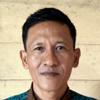
Role: Non-Executive Chief Director
Village: Muntei

Role: Non-Executive Senior Supervisor
Village: Muntei

Role: Non-Executive Supervisor
Village: Muara Siberut

Role: Chairman
Village: Muara Siberut

Role: Treasurer
Village: Muntei
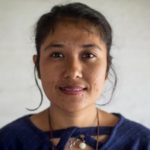
Role: Secretary
Village: Muntei
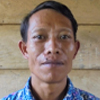
Role: Cultural Education
Village: Puro

Role: Research
Village: Muntei

Role: Media and ICT
Village: Muntei
Why the CEE Program?
For several thousand years indigenous Mentawai have sustained their survival by maintaining practice and preservation of Arat Sabulungan; a complex cultural belief system giving reverence to the spirit of their ancestors, the sky, land, ocean, rivers, and all that is natural within. Arat Sabulungan provides local people with the skills, knowledge and values required to maintain a self-sufficient and sustainable lifestyle here.
As teachers, healers and caretakers of this indigenous knowledge, local shaman, known as Sikerei, fulfil their responsibility to the wider community by educating them in the intricacies of Arat Sabulungan; instilling within their people a comprehensive understanding of all that life here is dependent upon. Sikerei are the backbone of Mentawai culture and its sustainability.
At present, largely due to the gradual introduction and influence of foreign cultural, behavioural and ideological change, the number of Sikerei still practicing Arat Sabulungan lifestyle and their role has diminished to a few small clans located in the south of Siberut island. The direct consequence of this meaning that the wider community’s access to a native education has all but disappeared too.
This disconnect between Sikerei and the Mentawai community and impending loss of their native culture represents a fundamental change to their once self-sufficient and sustainable existence. Which, as discovered through extensive research and analysis of both a community educated under the Mentawai cultural education system and a community educated without, is resulting in a significant decline in health, wellbeing and livelihood across the wider community and is a catalyst for what seems likely to become severe and long-term poverty (see the Film).
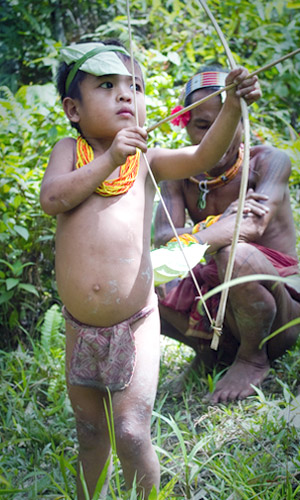
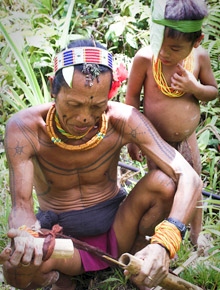
“A strategy has been initiated and developed by the local community to ensure their people have the opportunity to include native cultural and agricultural education within their day-to-day learning”
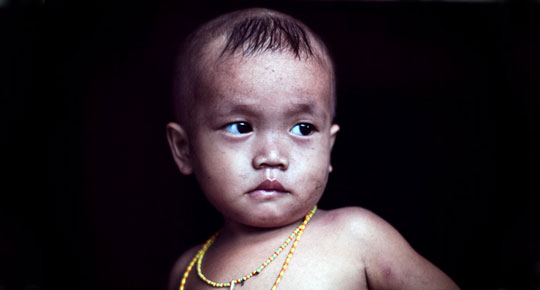
In response to the findings from research conducted within Mentawai over the past six years, including the baseline survey managed by a team of local surveyors, key members of the local community have initiated and developed an indigenous education solution designed as a strategy to prevent this from devastating the lives of their people. The Cultural and Ecological Education Program: providing opportunity for Mentawai people to learn the aspects of indigenous education and lifestyle they deem most important for their current and future prosperity.
Key Baseline Survey Results
Conducted by Suku Mentawai during the latter part of 2011, the comprehensive baseline survey provided the indigenous Mentawai community, for the first time in history, with the opportunity through a regulated platform to register their opinions, wants, needs and attitudes regarding their current social and societal situation.
Qualitative and quantitative data collected in a settlement village located in the southern regions of Siberut Island found that Indonesia’s mainstream practices and ideologies are already well established within these zones. People believe in a recognized religion (98.2%); students enjoy attending school (89.5%); parents believe nationalised education is important for their children’s future (76.8%); and they agree that important developments for the future of Matotonan include better schooling and educational facilities (43.1%); road, electricity, lighting, and communication improvements (22.4%); better employment opportunities and a stronger economy (9.8%).
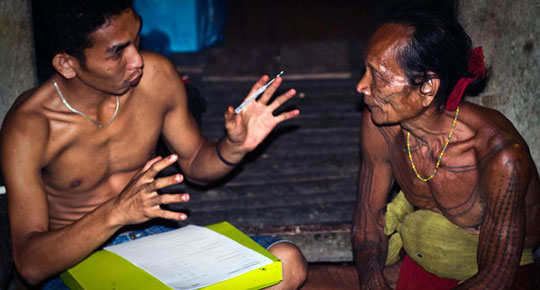
The consequence of this integration however is that the knowledge and understanding of their native culture and environment is now considerably low and, for the latter, virtually non-existent. A reality made evident by the fact that no members of the Matotonan community were able to identify the establishment of a single community-based cultural or ecological education activity; and by 68.5% of the community admitting to possess a low-med knowledge of the plants, animals, and forest here – even more so the students, with 87.7%. Based on these findings, for people of whom 97.5% believe they could not survive without the ability to gather resources found in their surrounding forest and who are, as a community, being deprived of an opportunity to develop this knowledge, indigenous Mentawai are headed toward a state of ruin.
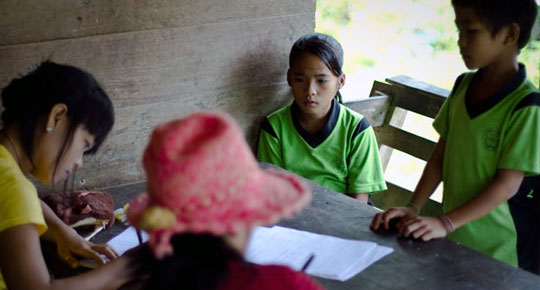
This, coupled with findings that show 83.3% of all teachers state that learning the skills of the forest (hunt, gather, cultivate, medicinal and building) is more important than learning to read and write, alongside 81.5% of students expressing the same sentiment; and 11 of the 12 community leaders, 5 of the 6 teachers, 93.8% of the students, and 89.9% of the entire community saying that they are not learning enough about Arat Sabulungan; establishes enough evidence to conclude that there is both need, desire and motive within Matotonan to develop a system integrating indigenous education into their day-to-day learning.











